At this time 78 years ago, President Ho Chi Minh signed the Decree establishing the Provisional Government of the Democratic Republic of Vietnam, which also marked the birth of Vietnam's revolutionary diplomacy.
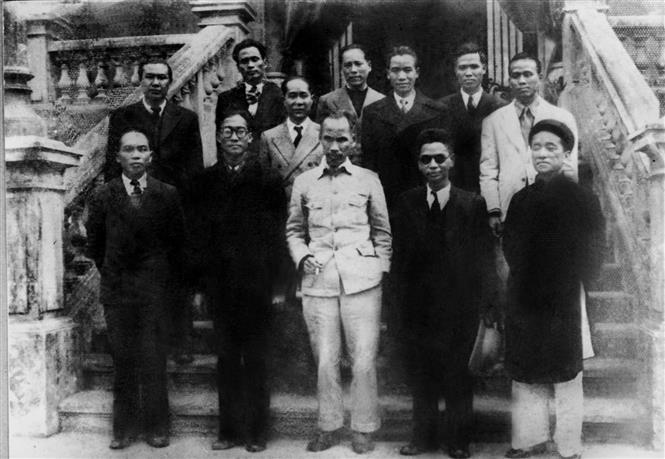 |
| After the August Revolution in 1945, the National Liberation Committee, elected by the Tan Trao National Congress, returned to Hanoi . On August 25, 1945, the Committee was reformed into the Provisional Government with President Ho Chi Minh as Chairman. In the photo: President Ho Chi Minh and members of the Provisional Government take a souvenir photo after the first meeting. (Photo courtesy of VNA) |
Journey of many achievements
The 78-year journey has crystallized many achievements and issues of the nature and laws of Vietnam's revolutionary diplomacy. It is difficult to fully and deeply cover a major topic in such a long journey. Consider this an opportunity to reflect and contemplate on a number of issues and lessons learned from foreign affairs through "slices".
Firstly , Vietnam's revolutionary diplomacy harmoniously combines traditional values in the history of thousands of years of nation building and defense; Ho Chi Minh's diplomatic thought; and world diplomatic theory and practice.
With its important geostrategic position, Vietnam is the target of many external forces. This situation makes diplomacy a regular activity, an important tool in the nation's journey of building and defending the country.
President Ho Chi Minh was also the first Foreign Minister, directly leading and guiding Vietnam's diplomacy. Not many diplomatic sectors of countries in the world as well as other sectors and fields have such a special honor. Under the leadership of the Party, the direct guidance of President Ho Chi Minh, traditional national values and the quintessence of world diplomacy were absorbed, inherited and developed in accordance with the international context and the specific conditions of the country.
Over the years, through challenges, good values have been condensed and crystallized into great viewpoints, ideas, and profound lessons on diplomatic strategy and tactics. Thanks to that opportunity, Vietnam's revolutionary diplomacy has both the common qualities of world diplomacy and the special, distinctive and specific features of the nation: Peace, friendship, harmony, humanity, sincerity, trust, responsibility, comprehensiveness and modernity.
Second , the Party and State's guidelines and policies and Ho Chi Minh's thought are the guiding principles and decisive factors in the nature and development of Vietnam's revolutionary diplomacy.
The Party and State's guidelines and policies and Ho Chi Minh's ideology contain the following basic viewpoints: Independence, self-reliance, self-strengthening associated with international solidarity and cooperation; combining national strength with the strength of the times; multilateralizing and diversifying relations; putting national and ethnic interests first; being steadfast in principles, flexible and supple in tactics; diplomacy being an important front with strategic significance...
From those viewpoints, appropriate guiding principles and mottos are proposed: "Respond to all changes with constancy", "make more friends and reduce enemies", "rely on one's own strength", "know yourself, know others", "know the time, know the situation", "know firmness, know gentleness", "know advance, know retreat"...
Having stood the test of time, many viewpoints, principles and mottos remain valid. In the current complex interwoven context, where big countries are trying to attract others, we understand more clearly Uncle Ho's teaching: If we are strong, they will "pay attention to us". If we are weak, we are just a tool in the hands of others, even if they may be our allies.
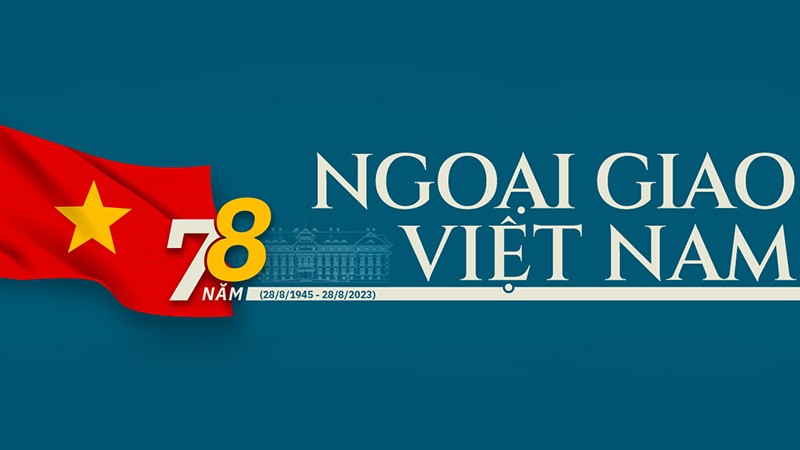 |
| Vietnamese diplomacy always accompanies the nation, serves the Fatherland, serves the people and is a pioneer in many tasks and activities. (Source: TG&VN Newspaper) |
Third, diplomacy always strives, constantly innovates, develops, affirms its role, successfully completes its mission, and makes an important contribution to helping the country overcome many dangerous challenges and achieve glorious victories.
Since its inception, vanguard diplomacy has paved the way, mobilizing countries to recognize the young revolutionary government and the newly won independence. During the resistance wars, vanguard diplomacy sought to delay the danger of war; clarify the justice; and gain the great support of peace-loving countries and peoples around the world. Fighting while negotiating was the Party's wise policy. The diplomatic front coordinated with the military front, creating a leap forward, ending the resistance war in favorable conditions, reducing losses.
Diplomacy is the spearhead in the fight against embargoes and isolation; paving the way for normalization of relations with China, the US, ASEAN, etc., and comprehensive and deep international integration. Today, diplomacy continues to play a pioneering role in creating and maintaining a peaceful, stable, and favorable environment for national construction and development and protecting the Fatherland from early on and from afar.
To fulfill the important responsibility and glorious mission, diplomacy must deeply imbue the Party's viewpoints and Ho Chi Minh's thought, improve awareness, political mettle, professional expertise, and transform them into revolutionary actions. Be steadfast in principles, and promptly innovate thinking, policies, and implementation methods when the international context and the country's situation change.
Diplomacy has left its mark on every journey, in every revolutionary stage, worthy of the recognition of the Party, State and People: Always accompanying the nation, serving the Fatherland, serving the people and being a pioneer in many tasks and activities.
Fourth, diplomacy brings Vietnam to the world and attracts the world to Vietnam, enhancing the country's potential, position and international prestige.
As of early 2023, Vietnam has established official diplomatic relations with 192 countries; including strategic partnerships and comprehensive strategic partnerships with 17 countries, including major countries and permanent members of the United Nations Security Council. The Communist Party of Vietnam has established relations with 247 political parties in 111 countries. The Vietnamese National Assembly has relations with the national assemblies and parliaments of more than 140 countries.
Vietnam is an active and responsible member of more than 70 important international organizations and forums. People's friendship organizations have relations with about 1,200 foreign people's and non-governmental organizations. Vietnam has signed and implemented 16 new-generation free trade agreements (FTAs), is negotiating 3 FTAs; and is the only country to sign FTAs with major economic partners around the world.
These impressive figures are convincing evidence of the achievements of Vietnamese diplomacy in the new period, creating a favorable diplomatic situation and a solid position for the country in the international arena.
Behind the outstanding events and achievements are quiet, persistent activities and persistent, clever diplomatic struggles; flexible, balanced, and harmonious handling of relations with neighboring countries, major countries, countries in the region as well as complex situations at sea and on the border... "Behind the scenes" activities are often difficult to quantify or "measure", but they contribute significantly to strengthening "soft power", enhancing Vietnam's international position and prestige.
Recall and reflect to understand the achievements, lessons learned and pride in Vietnam's revolutionary diplomacy. Without a solid foundation and a journey of nearly 80 years, there would be no achievements today. In which, the diplomatic sector plays a core role; other sectors, fields and each citizen contribute in their own way.
Reflection and pride are necessary but not enough. The world continues to move, posing new demands. Continuing to act, continuing to move forward is the best way to preserve and promote traditional values.
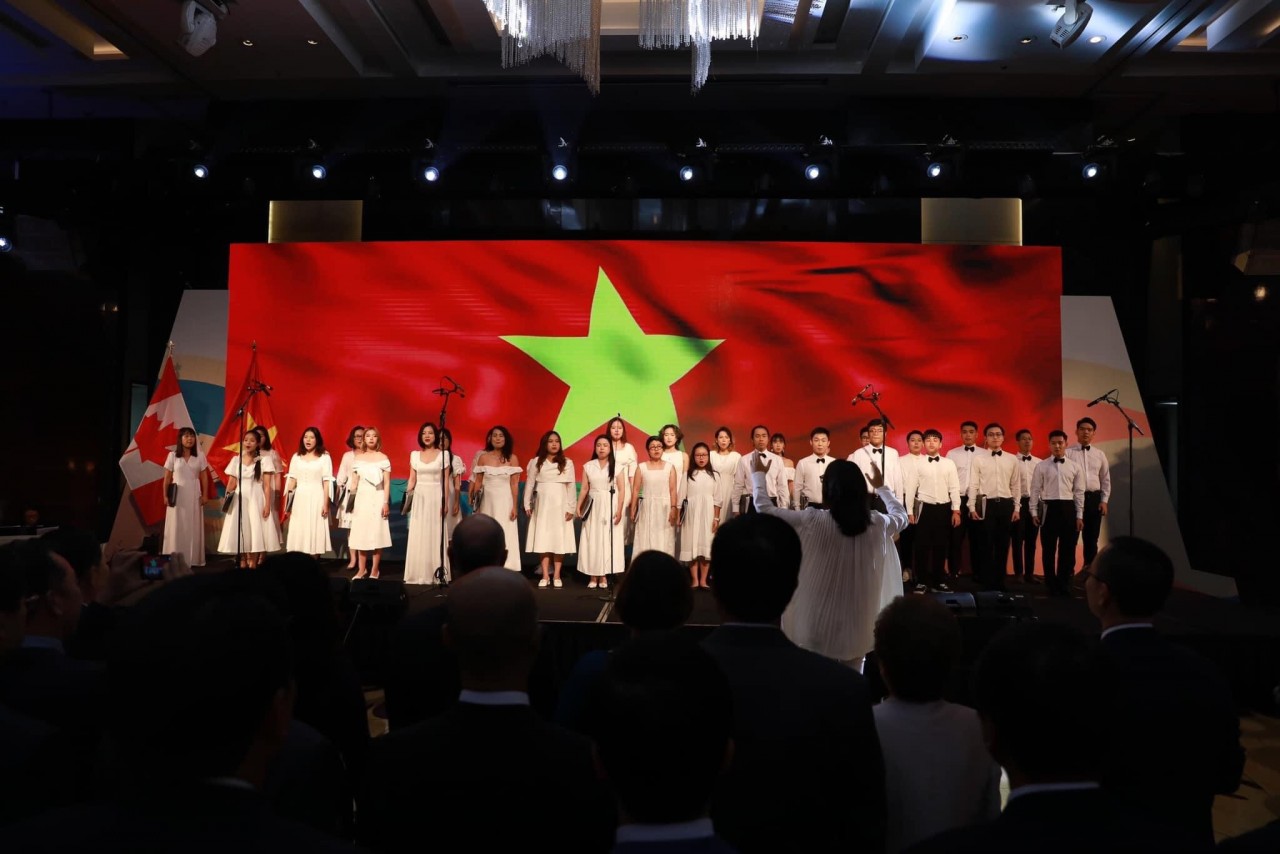 |
| The Vietnamese national anthem plays at the 50th anniversary celebration of the establishment of Vietnam-Canada diplomatic relations in Hanoi on August 24, 2023. (Source: Embassy of Canada in Vietnam) |
Continue to accompany, serve and pioneer
The 13th National Party Congress completed and developed an independent, self-reliant, peaceful, cooperative and developmental foreign policy; multilateralized and diversified international relations; and proactively integrated comprehensively and deeply into the world.
The mid-term conference assessed the results, drew lessons and identified key directions and tasks to successfully and comprehensively implement the Resolution of the 13th National Party Congress. On that basis, diplomacy needs to implement priorities and key solutions.
Firstly, correctly assess the situation, advise and propose foreign policies and strategies, and international integration.
In the coming years, the world situation will continue to change rapidly, strongly, profoundly, complicatedly and unpredictably. Diplomacy needs to continue to be proactive, sensitive, and closely coordinate with other sectors and organizations in research and forecasting the situation, regular and sudden issues in all fields. Timely advise and propose appropriate countermeasures, take advantage of beneficial factors, and limit negative impacts.
Second, continue to thoroughly grasp the basic viewpoints, lessons learned and orientations of the mid-term Conference, and successfully and comprehensively implement the Resolution of the 13th National Party Congress.
The focus is to promote the building of a comprehensive and modern diplomacy on all three pillars: Party diplomacy, State diplomacy and people-to-people diplomacy; ensure the Party's unified leadership and direction, the State's centralized management; close and synchronous coordination between pillars and forces. Bring relations with partners into greater depth and substance; increase political trust and intertwined interests. Promote and elevate multilateral diplomacy, proactively integrate comprehensively and extensively into the international community; enhance Vietnam's role in building and shaping multilateral institutions. Respond proactively, flexibly and effectively to new regional connections, in accordance with national interests and security.
Thoroughly grasp and continue to develop and implement the "Vietnamese bamboo" diplomatic school as directed and oriented by General Secretary Nguyen Phu Trong: "firm roots, strong trunk, flexible branches". The core of "firm roots" is "deeply rooted in Motherland", firmly maintaining the principles of independence, autonomy, self-reliance, and self-strengthening. To have a "firm trunk", we must improve our mettle, intelligence, qualifications, and ability to overcome difficulties and challenges, and dynamically adapt to changes in the world. To have "flexible branches", we need to respond flexibly and cleverly to all changes and situations.
Third , promote economic diplomacy to serve development; improve the effectiveness of comprehensive and deep international economic integration.
Transforming political and diplomatic advantages into economic benefits. Consolidating and expanding export markets, gradually diversifying export products, markets and import partners. Positioning Vietnam in the global supply chain shift and green transformation. Proactively and actively seizing opportunities and development trends, seeking support from countries and international organizations. Effectively implementing FTAs, especially CPTPP, EVFTA, RCEP...
Fourth , promote the role of foreign affairs in protecting the Fatherland early and from afar.
Strengthen close coordination between foreign affairs and national defense and security, grasp the situation in the East Sea and land borders. Proactively promote cooperation with relevant countries, promptly advise and effectively fight to prevent acts of infringement on Vietnam's sovereignty, territory, jurisdiction and legitimate interests. Promote negotiations to build an effective and efficient COC in accordance with international law, including the 1982 UNCLOS. Proactively inform and fight against distorted, inciting and divisive arguments...
Fifth, continue to build a synchronous, comprehensive, and modern diplomatic sector based on the pillars of human resources, organizational structure, processes, operating methods, and infrastructure.
Promote the building of a team of diplomatic staff that is comprehensive in politics, ideology, courage, ethics, intelligence, modern, professional in style and working methods, with a spirit of innovation and creativity; especially strategic staff, leaders, managers and a team of experts with regional and international qualifications. Perfect the organization, apparatus to be streamlined, scientific, reasonable and effective. Promote modernization, digital transformation, application of digital technology to build physical and technical infrastructure to serve diplomatic activities.
Source









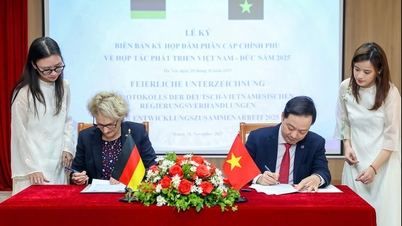

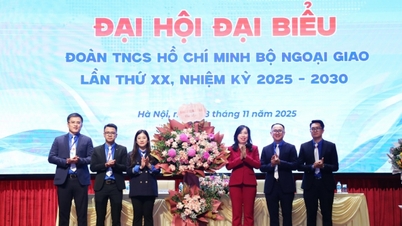
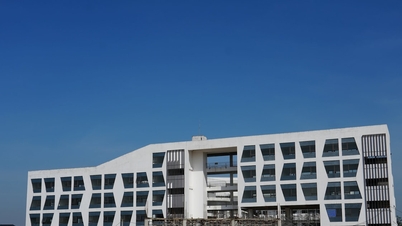

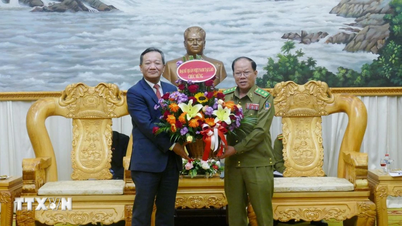

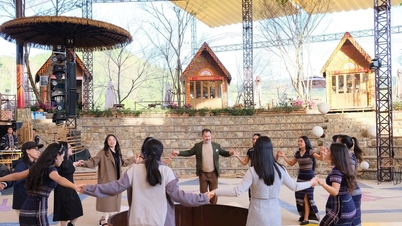







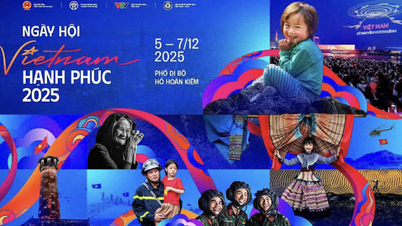









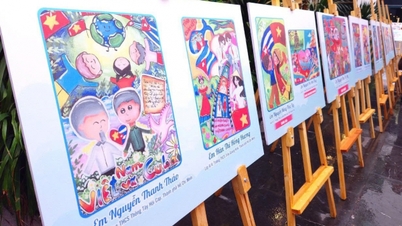
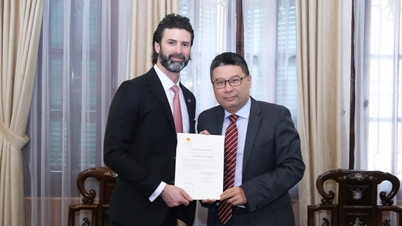
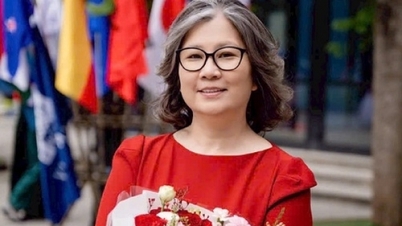







































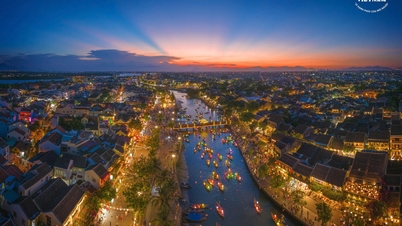










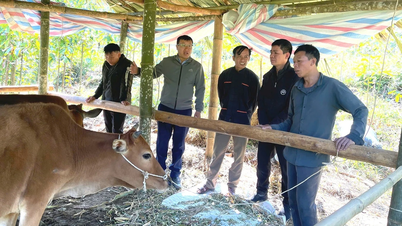

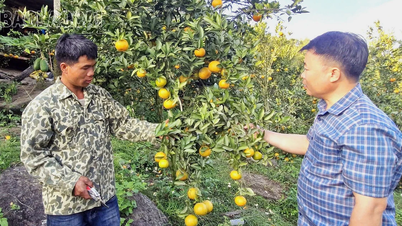


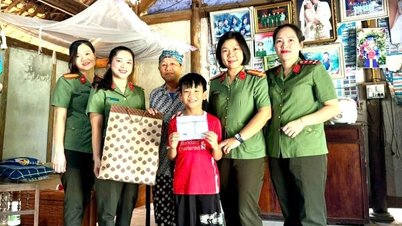
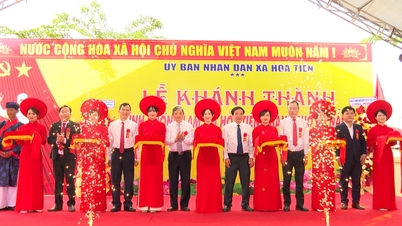

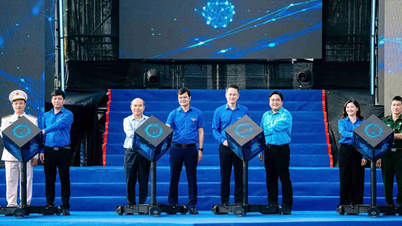









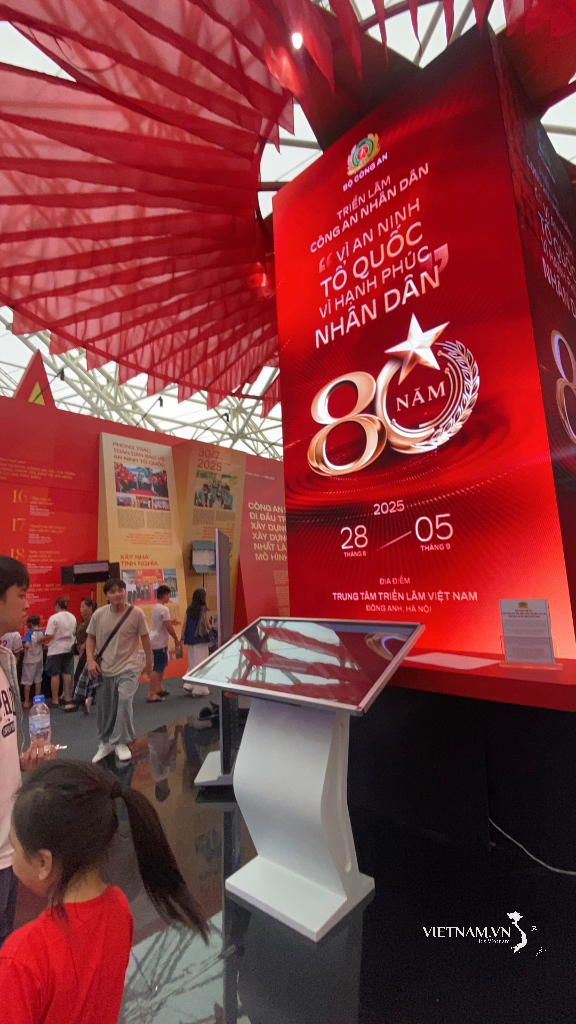

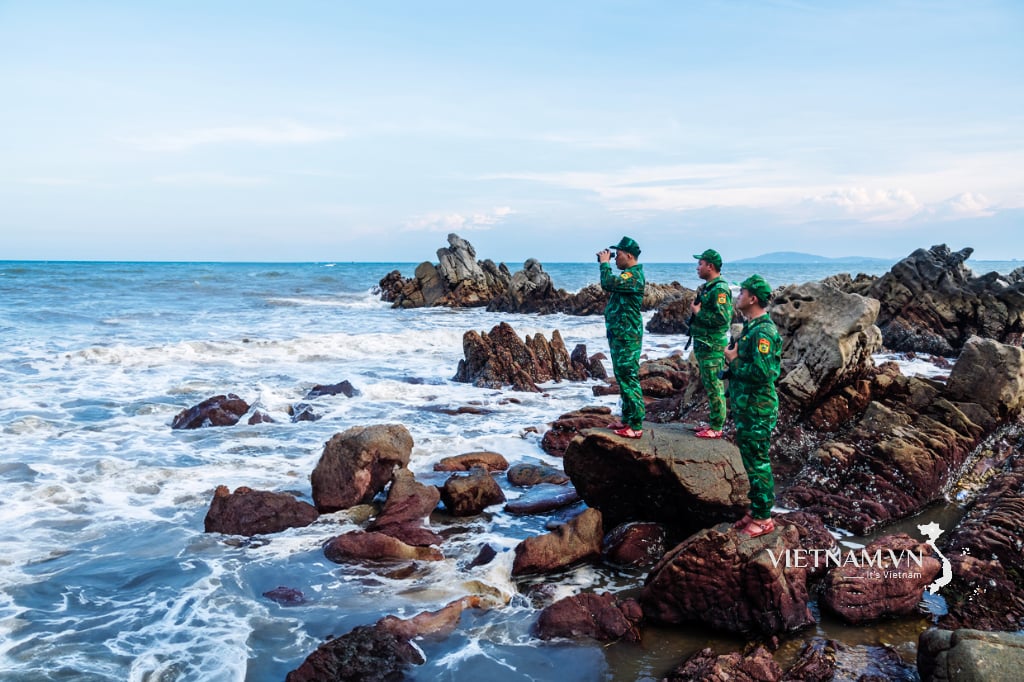





Comment (0)